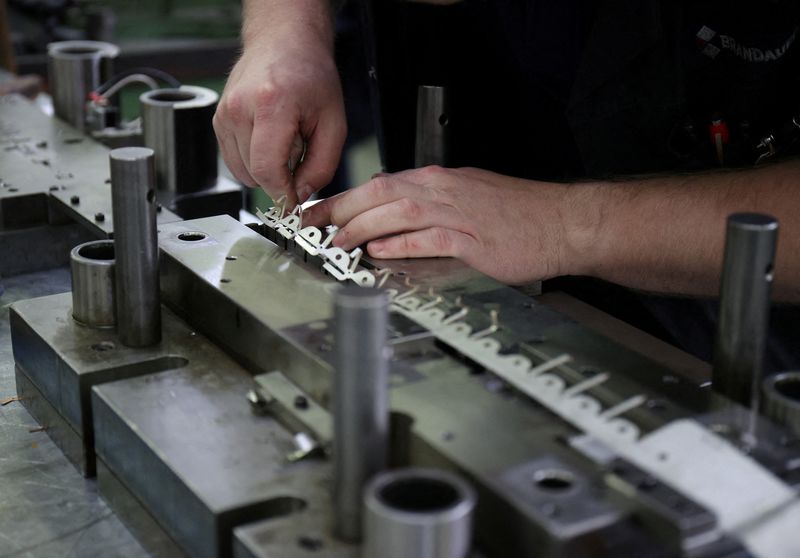Global manufacturing gloom dims UK activity: PMI survey
2022.12.01 05:22
[ad_1]

© Reuters. FILE PHOTO: A worker at contract precision stamping company Brandauer’s factory in Birmingham, Britain, July 28, 2022. REUTERS/Molly Darlington/File Photo
LONDON (Reuters) – British manufacturing activity fell for a fourth month in a row in November, as businesses faced the weakest overseas demand in two-and-a-half years, leading to job cuts and reduced confidence about the year ahead, a survey showed on Thursday.
The figures add to signs that Britain’s economy has fallen into recession, although there was a glimmer of light for the Bank of England as factory output price inflation slowed to its lowest since March 2021.
The S&P Global/CIPS manufacturing Purchasing Managers’ Index (PMI) edged up to 46.5 in November from October’s 46.2 two-and-a-half-year low. November’s reading is well below the 50 mark that divides growth from contraction, though a shade stronger than an earlier ‘flash’ reading that was unchanged from October.
Aside from during the pandemic, October and November have been the weakest two months for the manufacturing PMI since 2009 after the global financial crisis.
Export orders fell at the fastest pace since May 2020, at the height of the COVID-19 pandemic, reflecting reduced demand from China, the United States and the European Union.
“Exporters reported that client hesitancy and subdued global market conditions had contributed to the decrease. Some also noted that the impact was exacerbated by issues relating to Brexit and supply chain stresses,” IHS Markit said.
Manufacturers cut jobs for a second month in a row, and at the fastest pace since November 2020.
Expectations for future output remained positive but by the smallest margin since April 2020.
The PMI data mirrors a slowdown seen in the Confederation of British Industry’s monthly gauge of industrial orders, although the CBI measure remains above its long-run average.
The most recent official data showed factory output in September was 5.8% lower than a year earlier.
Last month Britain’s Office for Budget Responsibility estimated the economy was already in a recession which would last until late next year and cost 2% of economic output.
[ad_2]
Source link








